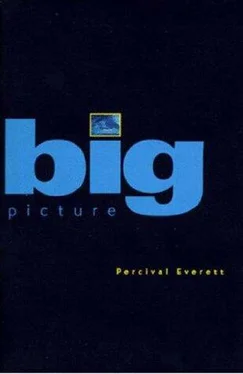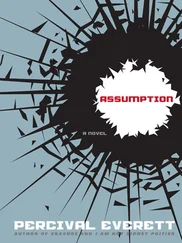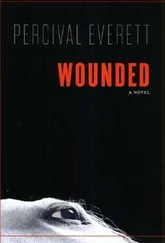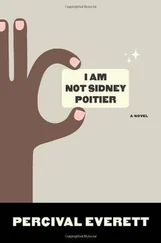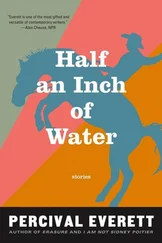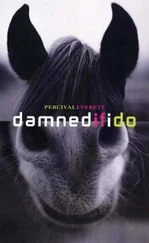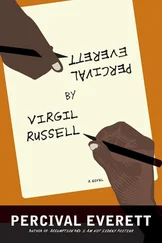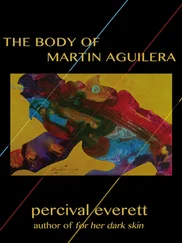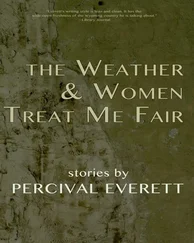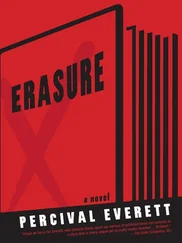His mother would be waiting in Taos for him and she wouldn’t tell him to get fucked. She would hug him like he was no fool, cry about his father’s death, and smile over her son’s homecoming. She would ask him to tell her about Honduras and then not listen. He laughed as he thought about the low desert surrounding him, thinking about water, no water. But when the water came it meant death. Mice and snakes and nests and anything else would be swept away by flooding, sudden rivers on a timeless landscape. To drown in a desert, that was the way to die, sinuses replete with sandy water, dead eye to dead eye with rattlers in the flow. Lucien closed his eyes and thanked God or something, anything, that he was out of the army, lost, but out of the army, no smarter, but out of the army.
The morning came to him along with thoughts of fishing and tying flies. The close work with the feathers, thread, and fur had always relaxed him. He drove the two hours north to Albuquerque and decided not to stop, not to eat. He decided to make his mother happy by arriving at her house famished. Her house — he replayed the words and they sounded right — her house. It was not his home; it hadn’t been for some time. It was a hard thought, but he wondered if he needed his mother. He loved her, but did he need her? A referee was of little use in a ring with one fighter, but had there ever been a fight, or was he kicking himself silly for things he’d never had a chance to say to his father, or worse, had the chance but not the inclination?
Camel Rock was a landmark because big rocks tend to be landmarks. It was a sign that he was closer to his country, but it was a sad sight, the dromedary outcropping crawling with camera-toting visitors and their oily-fingered offspring, nature’s new erosive element: people who were shaping land just like time and water and wind, but leaving no beauty, just marks. He noted the rock as he rolled by, but kept his eyes forward on the highway with its steady, mesmerizing, reassuring yellow line. Then he was waiting for the view, the view he would get when he was through the mountain pass and looking down on the Taos Valley, where the Rio Grande Gorge snaked through like gossip.
He reached the vista, stopped his truck, and got out to have a look. It was as he always remembered it, no larger than life, but the biggest life he knew. He was like the space between the walls of the gorge, being from a black father and a white mother. He was not Indian, not Mexican, but he looked like he could be either. The gorge was a vastness that couldn’t be ignored, but really couldn’t be defined. There were some black people in Santa Fe and certainly in Albuquerque, but not in Taos, save for the occasional counterculture, transplanted, California-style would-be artist passing through or settling to work in a gallery or boutique. A thunderhead formed over the hills to the west as he drove through Ranchos de Taos and he counted another five fast-food joints added to the awful strip that threatened to make even this place, so singular in setting, just another clone row of America, another burb of the interstatic. He drove through downtown Taos and its traffic of beat-up pickups and BMWs and rusty ’63 Impalas and Mercedes to El Prado and then down the dirt road that led to his mother’s house.
Lucien’s mother cried and hugged him and with her small body pulled him into the house. The place looked the same, but it appeared quieter. His mother was a strong woman, a fighter, so the house was still alive, she would never let the house die, but it was quiet. The house was special to Eva, and now it was hers, just hers; her husband was dead but she had her home. Lucien liked the way it felt. He was surprised that he could not feel the presence of his father and more surprised that he wanted to. He knew that if he raised the issue with his mother she would tell him in no uncertain terms that his father was everywhere, breathing in each room, stuck like cobwebs in each corner. So he didn’t mention it.
“Food, you need food, don’t you?”
“Actually, I’m starving.”
“It won’t take a minute.” She was off to the kitchen; her son trailed behind her. “I wasn’t expecting you until tomorrow.” Turning to see him again, she said, “You look well. Fit. You look fit.”
“I suppose I am fit. But look at you. You look terrific, Ma. Have you been working out, some aerobics or something? Playing a little basketball?”
“I walk. I walk everywhere these days. Except to the grocery store. That’s too far away, at least for carrying sacks.”
Lucien sat at the table and watched his mother gather food from the refrigerator and cupboards and drop pans on the stove with noise that wasn’t noise. “Pancakes, eggs, and sausage. I know it’s lunch time, but that’s what you need.” She hesitated for a moment, twisting her small face. “No eggs. There are eggs in the pancakes. We’ve got to watch our cholesterol.”
“Yes, ma’am.” He watched as she broke eggs into a bowl with flour and milk. “You do look really good, Ma.”
Without turning to face him, she said, “I feel good. I miss your father, but people die. You live with it.” Then quickly, “Tell me about Honduras.”
“Nothing to report really. It wasn’t much different from Espanola, to tell the truth. Mostly we just sat around the base.” He recalled the rocking motion of the soldiers he knew, leaning at sills while reading letters from home, rocking back and forth on their heels, just waiting, waiting to go home, waiting to be told to do something, waiting to be told not to wait any longer. “It was pretty boring. A lot of waiting.”
“Your room is all ready for you. It’s not exactly how you left it.”
“You mean it’s clean.”
“It’s very clean. And let’s try to keep it that way.” She poured batter onto the skillet.
Lucien listened to the hiss of the frying cakes as he thought about sleeping in the house. He didn’t want to stay there, didn’t want to shower where his father showered, sit on the same toilet. He realized for the first time that he was afraid of missing the man, afraid of finally facing the loss. Until now it had been convenient to blame his father for his own death, thinking that if he had taken better care, if he had slowed down, if.… “I’m not staying here.”
Spatula in hand, she turned. “What?”
“I need to find a place of my own,” was the best he could come up with.
“Well, I can understand that, but you just got here.”
“I’m going to find something as soon as I can. Today maybe.” He felt like a kid caught in a stupid lie that was snowballing.
There were no tears from Eva’s eyes, no sounds of crying. “That’s stupid. And mean.” She turned, examined the pancakes, and tossed one into the garbage.
She was right. He didn’t want to hurt his mother. “Ma, I’ve been sleeping in a bunk under a fat guy with gas for five months. I need room.”
“You’ll have the room to yourself.”
“I know.” He paused. “It was a long drive. Of course I’ll stay here.”
She stepped to him and touched his face.
“I’m sorry, I didn’t mean to hurt your feelings.” He looked about the kitchen. “I’m scared of missing Dad, I guess.”
She turned to the cooking and he knew that she was crying. His father was certainly dead. His tying room, the small room at the back of the house where he had fashioned his flies for fishing, was neat. All of his tools, his vise, his bobbins, bodkins, and scissors were there, but everything was orderly. The feathers that he used were packed away in clear plastic boxes with mothballs, as were the squares of fur: rabbit, deer, elk, bear, muskrat. Lucien sat at the desk, loosened and tightened the vise, and looked at the hooks sitting in plastic cups, smallest to largest, left to right. So much order would have driven his father crazy. When his father was alive, the desk was a mess. There were pieces of feathers floating and clinging to the sleeves of his sweater, the debris of trimmed deer hair everywhere, snippets of thread and floss and tinsel littering the floor. Now it was all neat, arranged as death must be because it is so simple.
Читать дальше
